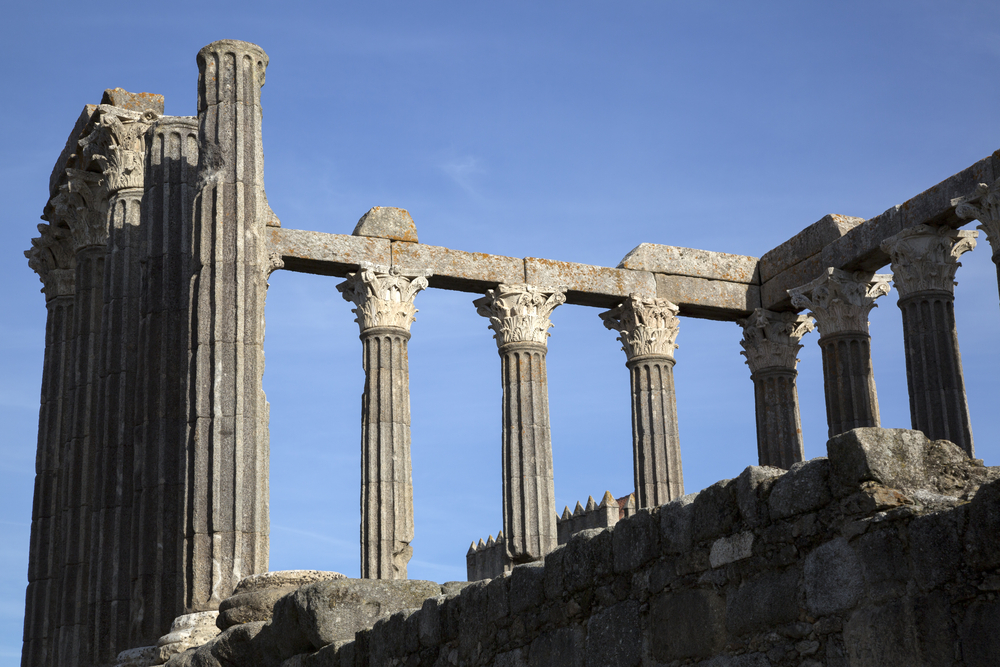A pretty famous guy once said that the goal of a good education is not to make one think right, but to make one act right. I’m paraphrasing, of course. I can’t recall the exact quote or the name of the fellow who uttered it, but the gist of it is hard to forget. Now, we all know that education does not save—only Jesus can do that—but education can and does form virtue in students when it is done well by parents and teachers; and virtuous students, after all, are students who act right. Last week I asserted that a good education teaches “a way of being.” Another way of saying it is to say that a good education forms virtue in students so that they not only think right, but they also act right. And what better way to form virtue than by reading old books?
Jesus said to him, “‘You shall love the Lord your God with all your heart, with all your soul, and with all your mind.’ This is the first and great commandment. And the second is like it: ‘You shall love your neighbor as yourself.’ On these two commandments hang all the Law and the Prophets.” (Matthew 22:37-40)
At Trinitas, we ask students to complete a minimum of 160 hours of service during their high school years. This amounts to forty hours each year—more is okay, less is not an option. In fact, to say that we “ask” students to complete 160 servant hours is an understatement; rather, it is a requirement of graduation. Completing 150 servant hours instead of the 160 disqualifies even the would-be valedictorian from graduating—the same as failing Traditio or failing to write and defend a senior thesis would keep one from graduating.
Topics: Blog Posts, School Life, Community Service
When thinking of the past, we often find ourselves in one of two precarious positions: veneration or disdain. Looking back on those “good ole days” can cause us to miss out on the gifts of God before us now. Do we, like Saul, desperately seek to evade the consequences of today by reaching out to the ghosts of the past? Or are we more like Ajax, holding silently onto old grudges, forsaking forever a chance for restoration to a friend and comrade? Surely these are not the only ways to view what has gone before us? Is there a way to recall the past with glorifying it unnecessarily, or treating as an experiment in regret?
Topics: Blog Posts, School Life, History, Classical Education
“I wasted time and now doth time waste me.” This is the lament of Shakespeare’s King Richard II. He was an idle and indecisive king whose crown was stolen from him because he wasted his past, and as he speaks these words he anticipates living out the rest of his days in prison or exile. Another of Shakespeare’s great figures, Hamlet, is also famous for wasting time. After the ghost of his father appears and burdens him with the urgent task of vengeance, Hamlet spends the next four acts of the play finding excuses not to go through with it, because he fears what the future might hold.
Topics: Blog Posts, School Life, Christian Education, Christian Living
We spend a lot of time thinking about our future. People ask you what you want to be when you grow up? Where are you going to college? What are you going to do with your life? What job do you want? There is much we don’t know for certain about our future. But today I want to tell you something about your future.
Topics: Blog Posts, School Life, Christian Living
In his book, The Liberated Imagination: Thinking Christianly About the Arts, Leland Ryken asks a simple but provocative question: “Why do people hang paintings on walls?” There is of course the straightforward response: “because they enjoy said paintings.” But there is another level to the response worth considering, and its implications ripple out beyond the singular notion of picture hanging. Creative expressions have been how humanity thought and considered the reality around it for all recorded history. We don’t write or tell stories or sing just because we enjoy it; we also do these things because we must.
Topics: Blog Posts, School Life, Classical Education
 Every quarter, our students are invited to participate in the Classic Film Society. We gather, eat popcorn, watch movies, and then spend time discussing the ways these films wrestle with the Gospel, even if they do it inadvertently. This is more than just an excuse to watch good movies, because movies are one of the primary way our culture searches for the Gospel. Directors aren’t necessarily looking to imbed the content of Christianity in their film, but they cannot escape the shape of Christianity.[1] Films made in the past demonstrate this, as do those that continue to come to a theater near you.
Every quarter, our students are invited to participate in the Classic Film Society. We gather, eat popcorn, watch movies, and then spend time discussing the ways these films wrestle with the Gospel, even if they do it inadvertently. This is more than just an excuse to watch good movies, because movies are one of the primary way our culture searches for the Gospel. Directors aren’t necessarily looking to imbed the content of Christianity in their film, but they cannot escape the shape of Christianity.[1] Films made in the past demonstrate this, as do those that continue to come to a theater near you.
And this is one of the beauties of our Classic Film Society: what we do connects with current movies as well.
Topics: Blog Posts, School Life, Christian Living


.jpg)





